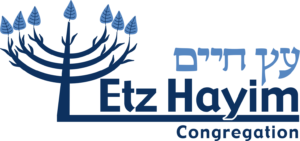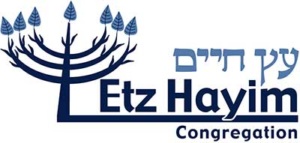
Q: In the second line of the Shemah we read, “And you shall love the Eternal your God with all your heart, with all your soul and with all your might.” Got any ideas on what the soul is?
A: According to our tradition, there are many ideas about what the soul is. Nefesh, which is the Hebrew word used in the Shemah, refers to the soul as it connects with the physical body. Everything in the world that has a corporeal nature has a nefesh. The uses in the Hebrew Bible of the word nefesh are many, and they all relate to the idea of a physical being. Our nefesh is our embodied presence in this world. In the Shemah, it makes a powerful statement; since this assertion of love for God comes right after we affirm the oneness of God, I believe the Torah is telling us that in order to connect with God we must be present, completely — our hearts (which in the biblical mindset meant our ability to reason), our being (embodied soul, or nefesh), and our God-given abilities.
Nefesh alone is not the complete picture of what our souls are. In Judaism we also have a ruach, which is translated as either spirit or wind. Like the meteorological wind, we can’t see our ruach or detail its existence, we can only experience its effects. Our ruach is the part of our soul that relates to emotional expression. It is the way in which we influence the world around us, the part of us that has the potential to sow love and spread the seeds of understanding.
We have a neshamah, which is the breath that God breathed into us. In the book of Genesis, chapter 2, verse 7, we read that God fashioned the human being from the dust of the earth, and then breathed into the nostrils the breath of life (nishmat hayim). The neshamah is the part that was breathed into us by God and reflects our character. It is the breath that we inhale and exhale, bringing in purity and letting go of what doesn’t work for us anymore. The neshamah reflects our awareness, our loftier desires to make the world a better place, and is the element of our soul that needs to be nurtured so it can nurture the world around us.
Together these three aspects create the Jewish vision for defining the soul in our tradition. Therefore, the soul of a human being is their embodied presence, the way in which they relate to the world around them, and their purest desire to change the world for the better. The soul is that part of us that relates to the world, with the capacity for creativity, love, growth, and the ability to improve our shared universe.

